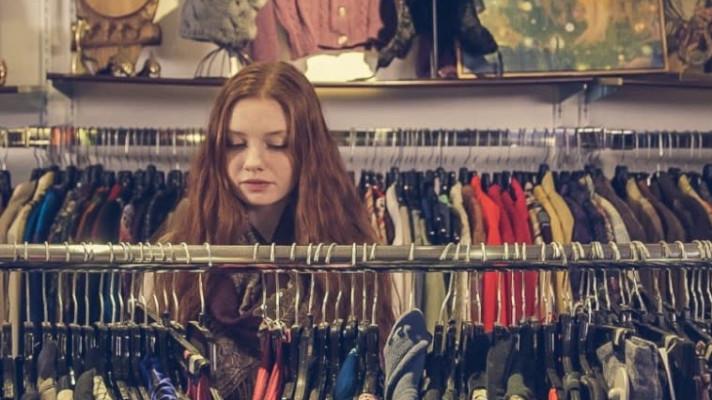Urgent break with fast fashion needed in upcoming EU textile laws
NGOs rebuff voluntary agreements to clean up the fashion industry, calling for the EU's upcoming textile legislation to hold brands accountable for their contribution to global pollution.
Some of Europe's largest networks of green groups are joining forces to demand an end to fast fashion in the textile industry, one of the world's largest industrial polluters.
As part of the Wardrobe Change campaign - a campaign including 25 NGOs*, including the European Environmental Bureau (EEB) - are calling for new policies to stop runaway overproduction of textiles. Proposed measures include minimum standards for how long clothes should last, a ban on the destruction of unsold and returned goods, rules to verify and substantiate green claims, and ambitious targets for an absolute reduction in the amount of natural resources used across the supply chain.
The groups are also calling for urgent rules to avoid hazardous chemicals in fashion and end labour rights' violations in supply chains. "We can't ask people to do their part when it comes to sustainability if the multi-billion-dollar companies responsible for promoting such unsustainable consumption habits are not being held to account," said Emily Macintosh, a policy officer at the EEB.
The call comes as clothing and textile production continues to soar despite an abundance of sustainability initiatives from major fashion brands and retailers.
In Europe, 675 million tonnes of raw materials are being used annually to fuel the consumption of clothing, footwear, and household textiles. Globally, the total amount of clothes produced doubled between 2000 and 2015 largely due to the fast fashion market, which is set to grow from $25 billion in 2020 to $40 billion in 2025.
"The EU can transform the way textile products are designed, making them sustainable by default," said Valeria Botta, Programme Manager at ECOS - Environmental Coalition on Standards. "Our clothes need to last longer, be easier to mend and reuse, and be made without harmful materials and substances," she said.
The European Commission is currently gathering feedback from industry and civil society organisations. The consultation runs until 4 August and a legislative proposal for the strategy is expected by the end of 2021.
Making sustainable clothing the norm
The NGOs' position paper has four key demands:
- Make sustainable textile products the norm through high minimum design standards, better production processes, traceability, transparency and information disclosure, and banning the destruction of unsold and returned goods.
- Drive resource-sufficient textile consumption with rules on what reliable green claims can be made on products, harmonised labelling, and better information on the expected lifetime and repairability of a product.
- Leave the linear business model behind by taxing virgin resource use and making producers responsible for the products they put on the market from cradle to grave.
- Hold the EU textile industry accountable for its role in the world through a trade reset and strong human rights and environmental due diligence rules.
*Members of the Wardrobe Change coalition include the following groups and their membership: the European Environmental Bureau (EEB), ECOS, RREUSE, Plastic Soup Foundation, Zero, Future in Our Hands, Changing Markets Foundation, HEJ Support, Generation Climate Europe, and Green Liberty.
Also supporting this paper are: Fair Trade Advocacy Office (FTAO), Polish Zero Waste Association, Runder Tisch Reparatur, Zero Waste Europe, Umweltdachverband, FOCISV, Irish Environmental Network, WECF France, Institute Povod Slovenia, ISD Foundation Poland, Na Mysli, OKOBURO, WECF Netherlands, and Wontanara.
